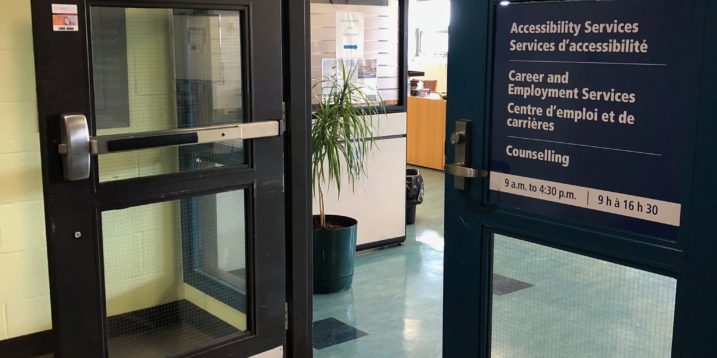By Kailin Samuels
A mandatory $50 Mental Health and Wellness fee will mean new changes to Laurentian campus’ mental health and wellness services.
The $50 fee was part of a 2018 referendum, which passed as students voted in favour of increasing the fee.
Érik Labrosse, director of Student Life, says the funding of over $300,000 dollars will be used to focus on enhancing operational goals, including increasing education and prevention, as well as more hours, reduced waiting times and expanding services at the School of Architecture.
“One of the things we get questioned on the most is ‘what are your waiting times?’” Labrosse said. “It does vary throughout the year, but reducing that is probably one of the main questions that we needed to answer in terms of how we were going to spend that money.”
Labrosse said that in meeting those goals they’ve been looking at the counselling and accessibility team and are working to add another counselling position.
Labrosse added that with this new funding, services will be able to expand in other areas that require support.
“One of the groups that we would like to work with are graduate students,” Labrosse said.
“It could also be accessibility, so in terms of what we know for how we support students and accessibility, it could be a functional limitation like something related to vision or mobility, but it also could be something that’s really related to managing anxiety or stress.”
Lucie Gélinas, Manager of Counseling and Accessibility services, said counsellors will work with students to establish goals and work towards solutions.
“They will guide students to develop and enhance their skills to better face the very challenging but also exciting world of post-secondary education,” Gélinas said.
“The funding will help to increase direct services to students and will make it easier to maintain, enhance and create new initiatives to support students,” Gélinas added.
Shivam Chadha, a fourth year Kinesiology Biochemistry student, said he sees the importance of the new fees, as added services impact all students.
“All the students that I’ve talked to have gone through some distress period during their university career and most university students do,” Chada said.
“Many students do go through distressing periods during their higher education, so giving that significance and giving it that importance and valuing the cognitive capabilities of students is very important… you want to enhance the lives of people, you don’t want to take away from it just because they’re in a university setting.”
